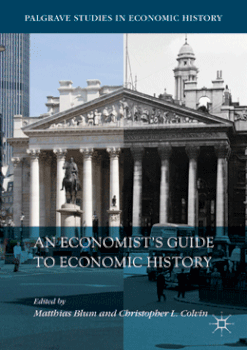|
Video is probably the most important media format on the internet today. We are all constantly watching them. Often we watch them without the sound, relying just on the subtitles. And usually they are very short pieces of communication of less than 2:20 minutes (the maximum allowed by Twitter!).
I think that academics don't engage enough video. This is a missed opportunity, because video allows us to reach new audiences beyond our lecture theatres and seminar rooms. A video have the potential to act as an "access drug", enticing viewers to download and read our books and articles, the pieces of academic communication we are more used to producing. The barrier for most academics in producing video communications, however, is expertise. While it is easy enough to make a video, it is not at all easy to make a good video. Academics need help! We have been very keen to make some video material to introduce the arguments of our book to potential readers. And with the generous financial support of Queen's Management School, we were able to commission Econ Films to do just that! We think it has turned out rather well. Chris.
0 Comments
We announced the publication of the book in two important newsletters earlier this month.
The first is the Economics Network's Newsletter. The Economics Network is the UK-based subject network for teaching and learning in economics. Supported, among others, by the Royal Economics Society, it aims to "enhance the quality of learning and teaching throughout the Higher Education economics community". The network curates an excellent website of teaching resources, and organises very useful training events for new university lecturers. I hope we can work with the Economics Network in future when thinking about designing new material that will help lecturers to implement our book's vision of greater engagement between economists and economic historians. The second is the Max Weber Programme Newsletter. The Max Weber Programme is the interdisciplinary postdoctoral programme of the European University Institute. Every year, the programme hosts about 60 fellows from across the social sciences, and from around the world. All are at the very start of their academic careers. Fellows are usually very eager to learn about new ideas for research and gain valuable advice to improve their teaching. I am an alumni of the programme and look back on my time in Florence very fondly. I think that many of the alumni of the Max Weber Programme will share our book's aim of Making Economics Great Again (MEGA). You can read the Economics Network's Newsletter here, and the Max Weber Programme Newsletter here. Chris. |
AuthorChris Colvin is an economic historian based at Queen’s University Belfast, UK. Archives
March 2022
Categories |
Matthias Blum and Christopher L. Colvin (Eds.), An Economist's Guide to Economic History,
Cham: Palgrave Macmillan (2018). DOI: 10.1007/978-3-319-96568-0. ISBN: 978-3-319-96567-3.
© 2018-2022 Blum and Colvin.
Cham: Palgrave Macmillan (2018). DOI: 10.1007/978-3-319-96568-0. ISBN: 978-3-319-96567-3.
© 2018-2022 Blum and Colvin.

 RSS Feed
RSS Feed